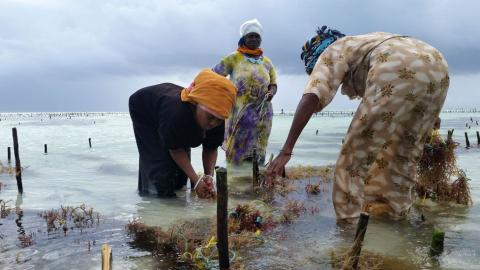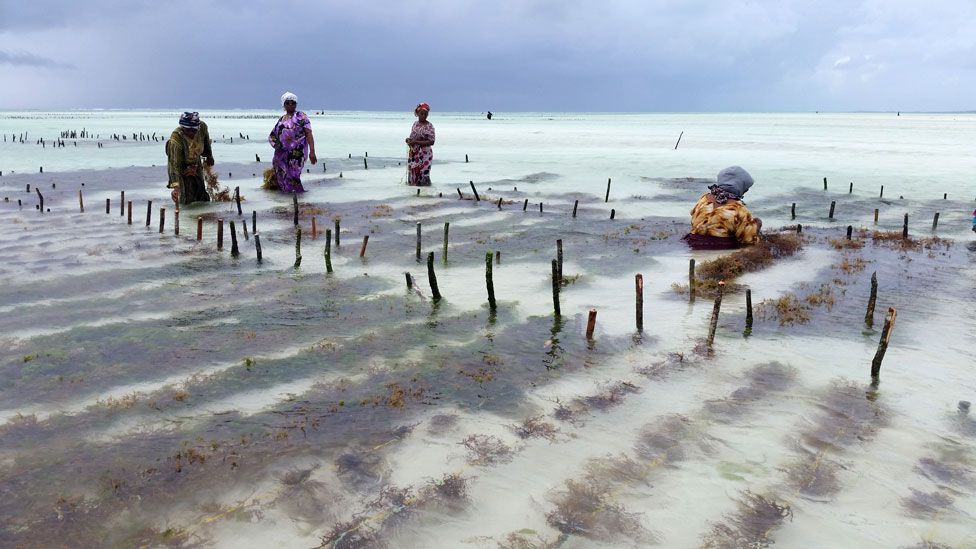
Seaweed has been hailed as a new superfood, and it's also found in toothpaste, medicine and shampoo. In Zanzibar, it's become big business - and as it has been farmed principally by women, it has altered the sexual balance of power.
Just after dawn, a group of women carrying ropes and sticks on their heads walk to the beach to plant seaweed at low tide.
Knee deep in the water, they drive the sticks into the sand. Small pieces of seaweed are then attached to rope strung out between the posts. In just over six weeks, these seedlings will grow tenfold and be ready to harvest. Some will be eaten but most will be dried, sold to a local broker and exported.
Raucous laughter mingles with the sound of wet skirts flapping in the breeze. The women crack jokes and exchange gossip - it's like a watery neighbourhood allotment.
When seaweed farming was first introduced in the early 1990s, men thought it wasn't worth their while. They preferred fishing or jobs in  tourism. But some didn't want their wives to farm either.
tourism. But some didn't want their wives to farm either.
Seaweed farming has proved a liberating force on the overwhelmingly Muslim island. Until recently most women in the villages only left their houses to go to a funeral, a wedding or to visit a sick relative. Their isolation was even reflected in the architecture - many houses have stone benches along the outside wall to allow men to receive visitors at home without compromising the privacy of their women indoors.
"At the beginning some husbands threatened divorce if their wives went out to farm seaweed," says marine biologist Flower Msuya. "But when they saw the money women were making, they slowly began to accept it."
Women began visiting the market and travelling on buses to the capital rather than leaving all the shopping to their husbands. Soon many families could afford school books and uniforms, furniture, better food and roofs made of corrugated iron rather than grass. Read more
